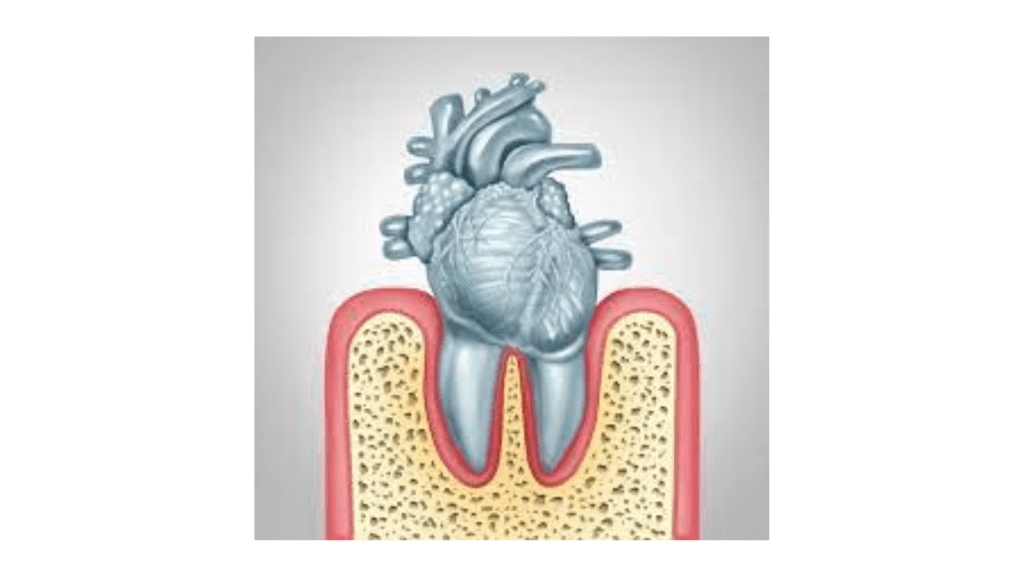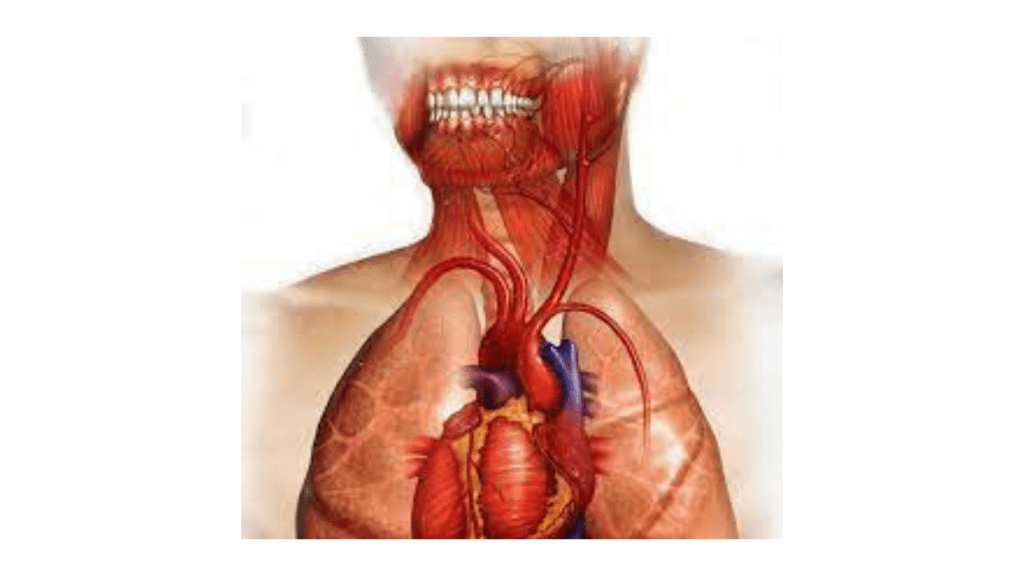
The Relationship Between Periodontal Disease and Cardiovascular Disease
For a significant amount of time, the majority of us were under the impression that coronary heart disease was primarily a "men's health" concern. This misconception persisted for a significant amount of time. And despite the fact that this is not at all the case, this misconception is understandable given the fact that throughout the majority of the 20th century, more men than women passed away from heart disease.
However, since the middle of the 1980s, there has been a steady increase in the number of deaths among women caused by heart disease. Since the year 2017, cardiovascular disease has continued to be the leading cause of death among both men and women. This is the case regardless of gender. In addition, research that was carried out by the American Heart Association indicates that heart disease is the cause of death for one out of every three women in the United States each and every year.
Maintaining a healthy diet and being physically active on a regular basis are two of the most important steps you can take to ensure your heart stays in good health. On the other hand, were you aware that maintaining regular dental appointments is beneficial to the health of your heart? We have joined forces with the American Heart Association in order to raise awareness about the correlation between having healthy teeth and gums and having a healthy heart and circulatory system as a whole as part of their celebration of Go Red for Women day.
Our bodies are complex systems. It is not an exception to the rule that problems in one area of the body can frequently cause problems in other areas of the body, and the mouth is not an exception to this rule. Poor oral health has been linked to a wide variety of health problems, including diabetes and dementia, according to recent research. Researchers have recently come to the conclusion that periodontal disease may have a causal relationship with a variety of heart conditions. According to the findings of various pieces of research, having poor oral health may be associated with a very wide variety of conditions.

According to a warning that was issued by the American Academy of Periodontology more than 20 years ago, which is when the connection between the two was first discovered, inflammation and infection of the gums can lead to conditions such as heart attack and stroke. The warning was issued because it was discovered that inflammation and infection of the gums can lead to these conditions. Since that time, a significant number of investigations have been carried out to provide evidence for the veracity of the connection between the two.
According to the findings of a review that combined the findings of several different studies, having a history of periodontitis, which is another name for severe gum disease, can increase a person's risk of developing heart disease by as much as twenty percent. "the risk for myocardial infarction was significantly increased among subjects with periodontitis with an odds ratio of 1:49," found the findings of a different study that was published in the year 2016. (That is an absolutely ridiculously high percentage.)
Although researchers in all of the studies have noted that periodontitis is not an absolute cause of heart disease (due to the fact that there are many other factors at play, such as a poor diet and the use of tobacco), it is difficult to ignore the correlation between the two conditions.
To what extent does periodontal disease contribute to the development of heart disease?
Plaque is the primary causative factor in gum disease, which appears clinically as an infection of the gums and is caused by the persistent formation of plaque on the teeth. Plaque is a substance that forms around the teeth and under the gums over the course of the day. Plaque is made up of bacteria and a substance that is sticky, and it is composed of both of these components.

By maintaining proper oral hygiene practices on a consistent basis, such as brushing, flossing, and visiting the dentist on a regular basis, plaque can be removed from teeth and prevented from hardening into tartar. This can be accomplished. Plaque and tartar are both ideal environments for the growth of the pathogenic bacteria that are responsible for gum disease. Both of these environments serve as breeding grounds for the bacteria.
When gingivitis, an early stage of gum disease, advances into periodontitis, it pulls the gums away from the teeth and can lead to visibly receding gums and even permanent tooth loss. Gingivitis is an early stage of gum disease. Periodontitis is a more advanced stage of gum disease. The first sign of gum disease is gingivitis, which is a mild form. The most advanced form of gum disease is known as periodontitis. As a consequence of this, the mouth becomes more receptive to the entry of additional bacteria, which then travels to other parts of the body and causes inflammation as well as damage to the blood vessels in those areas.
The bacteria that live in your mouth when you have gum disease can cross over into your bloodstream, enter your heart, and directly infect the vulnerable heart valves, according to Dr. Marietta Ambrose, an assistant professor of clinical medicine at the Perelman School of Medicine at the University of Pennsylvania. Dr. Marietta Ambrose has been quoted as having said these words. "The microbes that are found in the mouths of people who suffer from gum disease."
According to Penn Medicine, this has been shown to be the case in numerous studies. "Oral bacteria have been found by researchers in the fatty deposits of people who have atherosclerosis, a condition in which plaque builds up in the arteries (of the heart). Atherosclerosis is a condition in which plaque builds up in the arteries (of the heart). These deposits, if left untreated, can cause the arteries to become narrower or become dislodged and clogged, both of which can lead to a heart attack or stroke."
How to protect yourself from developing heart disease in addition to gum disease
These facts might be cause for concern, particularly when viewed in light of the fact that it is estimated that roughly half of all adults in the United States suffer from some form of gum disease. On the other hand, just like with so many other aspects of our health, we can all take preventative measures to lower the risk that we will develop the condition.
It goes without saying that brushing your teeth twice a day helps reduce the accumulation of plaque and tartar, both of which attract bacteria that is harmful to your teeth and gums. Brushing your teeth twice a day also helps remove food particles stuck in between your teeth, which can cause cavities. Brush your teeth carefully and in a circular motion using a toothbrush with medium or soft bristles. This type of bristle is less likely to cause damage to the gums than harder bristles. It is important to remember to brush not only your teeth but also the inside of your cheeks and your tongue when you brush your teeth.
You should floss the area that is located between your teeth and gums at least once per day, if not more frequently. (If you want more information, you can read a blog post that we wrote about the differences between traditional floss and a water flosser.) "Regular floss" is the term used to refer to the string that is used to clean between teeth.
•It is recommended that you visit your dentist at least twice a year for checkups and cleanings. These visits should be spaced out evenly throughout the year. In order to keep your health in good standing, it is essential to deal with issues as soon as they arise. For this reason, be sure to mention any problems that you have observed, such as gums that are swollen or bleeding or teeth that are unusually sensitive. Your dentist will be able to determine the cause of the problem and recommend the appropriate treatment. They are able to instruct you on the correct way to brush your teeth and use floss, and they may even suggest specialized products, such as a mouthwash that contains folic acid. In addition, they are able to answer any questions that you may have regarding your oral health.
It is essential to keep in mind, however, that not everyone will have a direct connection between gum disease and heart disease. Not everyone will have a direct connection between gum disease and heart disease. This is something that has been discussed in the past by both of us. There are many people who have one without developing the other, and shared risk factors can make it difficult to pinpoint the exact cause of either condition. In other words, there are many people who only have one of these conditions.
In spite of this, there are a few steps you can take to lower your chances of developing gum disease as well as heart disease, and they are as follows:
CLICK HERE TO SCHEDULE YOUR APPOINTMENT!
GET TO KNOW YOUR BEST DENTIST IN SUMMERLIN
Dr. Marianne Cohan was voted The Best Dentist/ Dental Office and Best Cosmetic Dentist from The Las Vegas Review-Journal in 2020 and 2021. She received her Doctor of Dental Surgery (DDS) from the State University of New York at Buffalo in 1992.

With an emphasis on cosmetic dentistry, complete makeovers, and implant dentistry, Dr. Cohan is committed to continuing education and feels that we never stop learning. Dr. Cohan takes pride in using high-powered magnification to perform minimally invasive restorative dentistry. She uses all the latest technological advances including digital radiography, digital photography, computer simulations, and high-resolution pictures of your proposed treatment on 55-inch screens. She also utilizes CBCT (cone beam) and laser technology.
Dr. Cohan is always available to her patients and is available for any dental emergency.